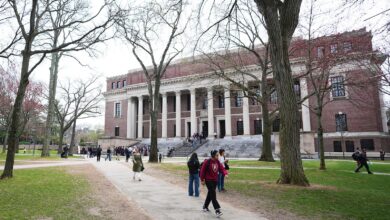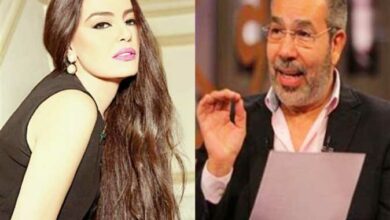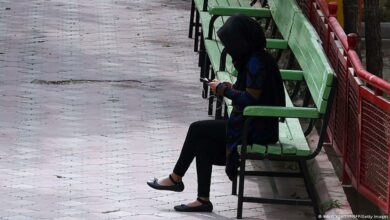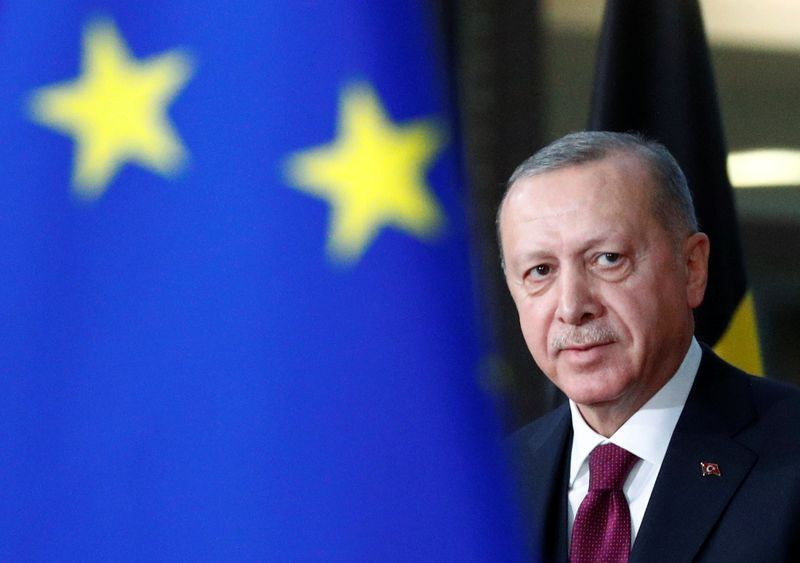On Thursday, President Mohamed Morsy met with a group of writers, filmmakers, actors and artists at the presidential palace in Heliopolis. The turnout among the invitees was moderate, as some of the country’s intelligentsia refuse to “deal in any way with an Islamist state.” From those who showed up, many hailed the president’s statements, reassuring them that freedom of opinion is guaranteed, and the country’s creative and cultural richness is as relevant as its material developments according to the state-owned Middle East News Agency.
Still, skepticism looms with the events that followed the meeting, from the police raid on book vendors on Nabi Daniel Street in Alexandria on Friday to the repeated controversial statements by some Salafi sheikhs describing artists as “prostitutes” and condemning cultural icons like Om Kalthoum and Abdel Halim Hafez for their romantic lyrics. Over the past few months, Egypt’s top comedian Adel Imam, along with a number of established filmmakers and screenwriters, has also been charged with committing blasphemy against Islam for films they took part in over a decade ago, and Imam was sentenced to three months in prison and a fine of LE1,000. (The Haram Misdemeanor Appeals Court acquitted Imam of those charges Wednesday).
Renowned author Gamal al-Ghitany is among those who refused to attend the meeting with Morsy, describing it as one for “taking photos rather than running cultural dialogue.” Ghitany believes that “there aren’t any chances for real dialogue, especially under their [the Brotherhood’s] exclusionary practices.” He cites how all of the public figures suggested by the Culture Ministry as potential members of the Constituent Assembly were not included in the final selection. He does not foresee dialogue, but rather predicts a full clash with Islamists.
Others, including author Ibrahim Abdel Meguid, have different views. Before attending the meeting, Abdel Meguid supported running dialogue with the new regime, saying cultural practitioners should communicate their concerns, get clear answers and discuss solutions. This, however, did not happen during the meeting, according to Abdel Meguid.
“The president gave a small speech around how he appreciates ‘meaningful’ arts,” Abdel Meguid tells Egypt Independent. “[Then] we told the president our demands. But, he did not give any [concrete] reassurances, and that is depressing.”
He does, however, see a beginning of a conversation as Morsy stressed his appreciation of the arts and condemned the recent attack on actress Ilham Shaheen by a Salafi sheikh who described her as committing “on-air adultery” in her films.
“The apology is a good sign,” says Abdel Meguid, adding that it needs to be supported with laws and actions on the ground to protect freedom of speech and creativity.
“We are not demanding the president prevent Islamists from expressing their opinions, but we need laws to protect arts and our freedom of speech as well,” he adds.
Film producer Medhat al-Adl supports dialogue with Islamists. Although his column criticizing the president’s relationship with the Brotherhood was banned last month in the state-owned Akhbar al-Youm after the appointment of Mohamed Hassan al-Banna as editor-in-chief, he participated in a recent open discussion with Islamist activist Islam Bokhary and preacher Fadel Suleiman at El Sawy Culture Wheel. Adl also told Egypt Independent that he would not have hesitated to attend the meeting with the president, had he been invited. He sees the president’s recent statements as positive, but believes that Morsy has limited influence on radical Islamist groups.
“I think we should accept any invitation for dialogue, in order not to give radical groups the chance to criticize us,” Adl explains.
Prominent novelist Sonallah Ibrahim — known for his staunch criticism and his stand against the Mubarak regime through his writings and refusal of the 2003 Arab Novel Award — also recognizes the importance of dialogue. In a talk Tuesday night at the Alef Bookstore in Heliopolis, he told the audience, “I disagree with President Morsy, but this regime has legitimacy and was brought about by the people.” He added though that the recent meeting with Morsy is not a measure of respect for freedom of artistic creation and expression. “We want to see respect for creativity on the ground; this is the most important thing, along with the need to represent all creative workers in such meetings.”




